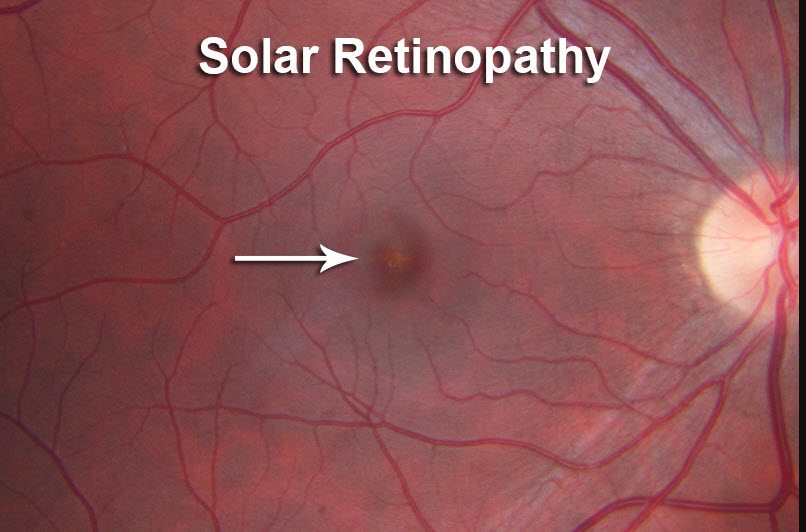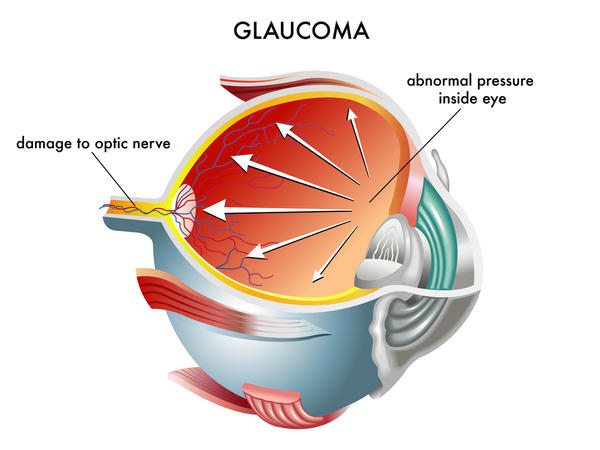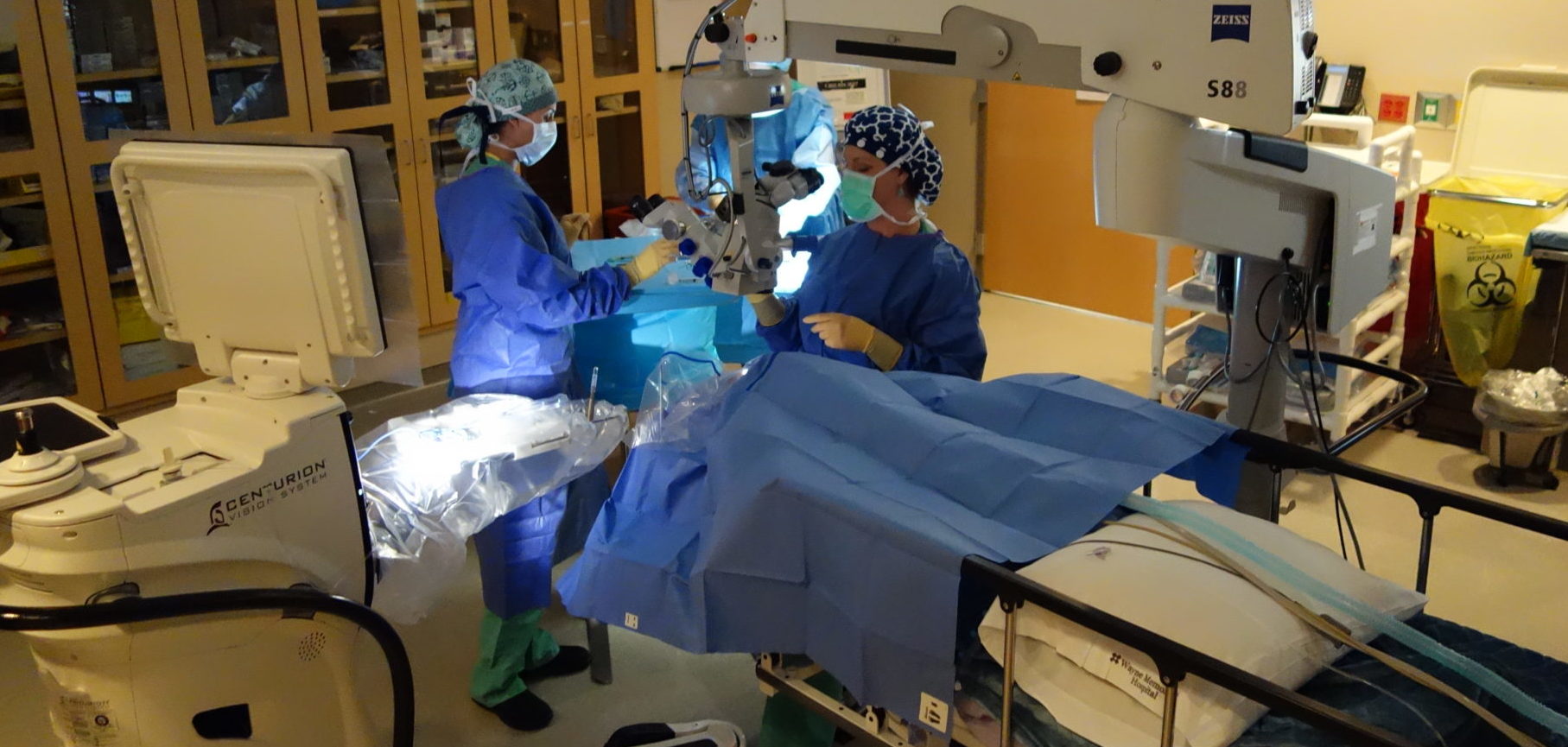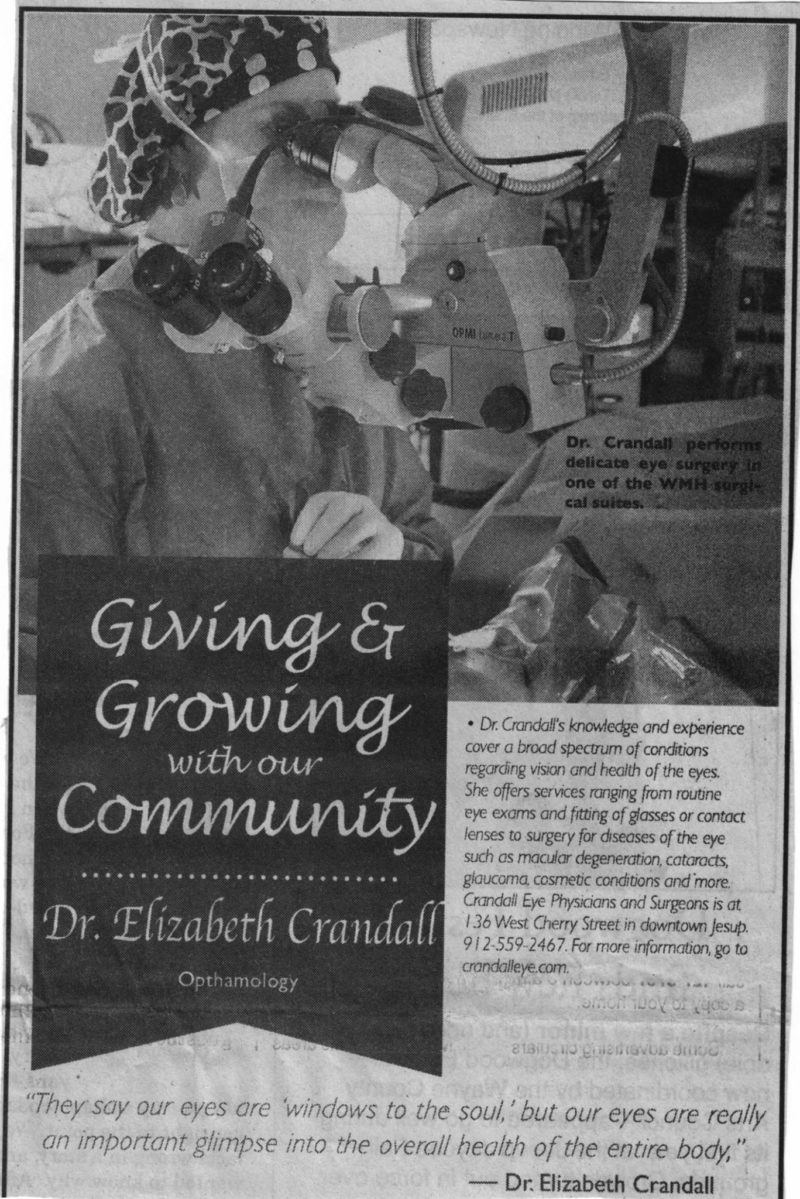Solar Eclipse is coming, are you ready?
Watching a solar eclipse is a memorable experience, but looking directly at the eclipse can cause serious damage to your eyes. Staring at the sun for even a short period of time without wearing the right eye protection can cause damage to your retina permanently. It can even cause blindness, called solar retinopathy.
Where is the Solar Eclipse in our area?
On Monday, August 21, 2017, the moon will Partially block the sun in our area of Southeast Georgia. Weather permitting, you will be able to watch this rare occasion with the use of Solar Eclipse glasses.

How to view the 2017 Solar Eclipse
The only safe way to view the solar eclipse is with the use of special glasses, known as “eclipse glasses”. ORDINARY SUNGLASSES WILL NOT WORK! The glasses must meet a worldwide specific standard known as ISO 12312-2. Homemade filters will not work either. Luckily, Crandall Eye will carry these special glasses and hand them out for free, until supplies last. If your in Jesup, you can stop by the office to pick one up with our safety handout. In Brunswick, we’ll be handing them out at First Friday in downtown Brunswick on August 4, 2017. Stop by our booth!
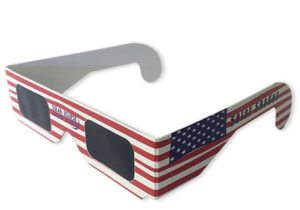
Take the following steps once you have your solar glasses to view the eclipse:
- Carefully look at your solar glasses and inspect them for any signs of damage such as scratches. If they are damaged, DO NOT USE THEM.
- If children are with you, help them to ensure they are using them correctly and follow the directions that may have come with the glasses.
- Before looking up at the bright sun, stand still and cover your eyes with your eclipse glasses first. After you are finished looking at the sun with your glasses, turn away and remove them. DO NOT REMOVE WHILE LOOKING AT THE SUN!
- The only time you can look at the sun without special glasses is during the total eclipse. Since we are not in the path of a total eclipse in Southeast Georgia you MUST wear your solar glasses at all times.
- Never look at the uneclipsed or partially eclipsed sun through an unfiltered camera, telescope, binoculars or other similar devices. This is important even if you are wearing eclipse glasses or holding a solar viewer at the same time. The intense solar rays coming through these devices will damage the solar filter and your eyes.
- If you are interested in getting a solar filter, talk with an expert and get recommendations for your devices.
Can I photograph the eclipse with my smartphone?
Yes! You want to be careful to not look at the sun and we recommend you use solar eclipse glasses while using video or taking photos with your cell phone.
How are eyes damaged by staring at the sun?
Solar retinopathy is a result of too much ultraviolet light flooding the retina, the back part of your eye. We also refer to this as your “rods and cones”. In extreme cases, this can cause blindness but is so painful that it is rare for someone to be able to stare at the sun for long. Typically, eye damage from the sun results in blurred vision, dark or yellow spots, pain in bright light or loss of vision in the center of the eye. Permanent damage has been shown to occur in about 100 seconds, but the exact time before damage occurs will vary with the intensity of the sun on a particular day and with how much the viewer’s pupil is dilated from decongestants and other drugs they may be taking. Even when 99% of the Sun’s surface (the photosphere) is obscured during the partial phases of the solar eclipse, the remaining crescent Sun is still intense enough to cause a retinal burn. There are no pain receptors in the retina so your retina can be damaged without you realizing it, by then it’s too late to save your vision.
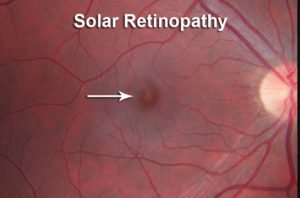
If you suspect you have damage, contact Crandall Eye for a thorough retinal exam.
Is the damage permanent?
If the damage is mild, your eyesight may return after the swelling reduces. The length of time will vary with each individual. Dr. Crandall will advise you on how to reduce the discomfort while the swelling goes down.
Unfortunately, if the damage is more severe, your eyesight may be permanently affected. It is only through monitoring of your eyesight over a period of weeks that Dr. Crandall will be able to assess the extent of the long term damage.
What if my eyesight cannot be fully restored?
If your eyesight is permanently affected, much can be done to help you adjust and use your remaining vision as fully as possible. We work with low vision clinics that help people cope with un-treatable vision conditions.
In Summary, STAY SAFE out there and WEAR YOUR SOLAR GLASSES! This is an exciting event to enjoy, and with the proper tools and education we can ensure your eyes stay healthy so you can experience future solar eclipses!

